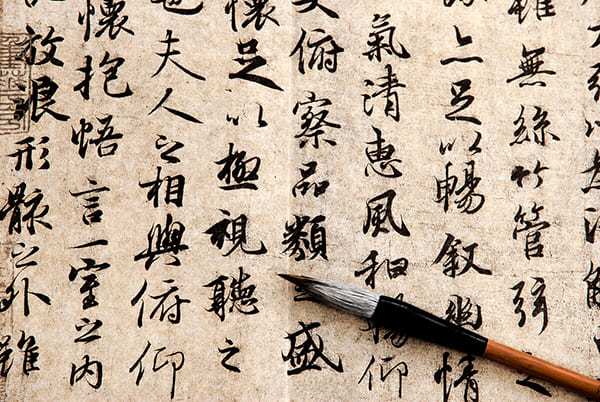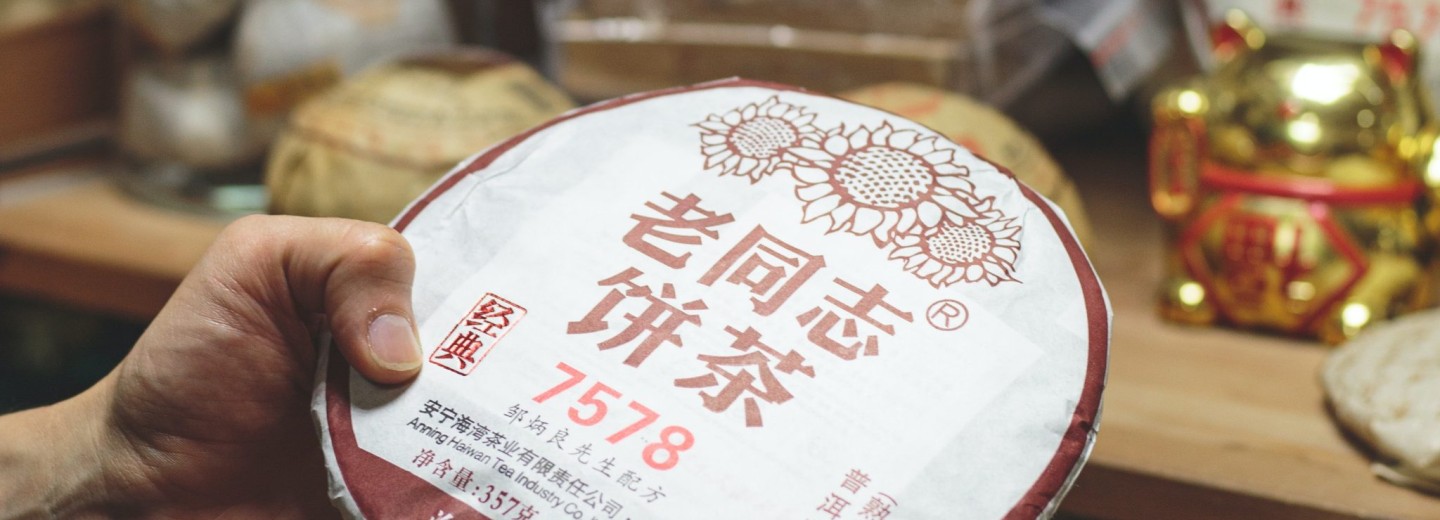China News 11th April 2022
Our first story is a rhapsody to one of China’s oldest, most expensive and unique teas. Less known in the West, it has many devotees globally. It is one of the few teas that contains no caffeine.
There is a kind of tea, which is known as “drinking an antique”. In recent years, it has kept breaking the trading records of tea auctions… Just mention it a little and senior tea lovers, collectors and investors eyes will shine.

Yes, this is Pu’er. Why is Pu’er becoming more and more valuable?
Within the correct storage method and reasonable storage period, it can be slowly fermented, and the taste will continue to improve over time. Pu’er tea that can be stored for a long time is not only tea, but also an icon for tea lovers. Like life, it is fuller with variety and charm as it grows older. Yes, the older it is, the more fragrant it is.
When the tea slides into your mouth, stir it with the tip of your tongue, feel the power of stirring and the feeling of impact in the mouth; you can fully feel the fullness and abundance of the tea. The tea enters the mouth for a moment and flows to the stomach smoothly and naturally through the throat.
Good tea was not cheap from the beginning. A long time ago even, the tea from certain areas was more expensive than tea in other areas. The tea leaves are straight and slender, and the sharp seedlings are tight and beautiful. After brewing them in boiling water, they will turn into a clear red tea soup in the cup, and the colour is beautiful.
Made to very strict high standards, the dried tea is dark brown, the stems are tight and plump, thick and fat, and the leaf veins are clear. It can be said to be an object of value.
Source: mall.ifeng.com.
We next hear about Internet translation services – improving all the time – but still with some colonial undertones. The author believes that China suffers from out-of-date Western prejudices.
As a convenient platform for language translation, the Internet is profoundly changing international communication. With the continuous improvement of its international influence, China is feeling the impact of this change. On the one hand, China has become an important contributor in global discourse. On the other hand, China’s domestic discourse has also become a platform for the international community to pay more attention. With the help of constantly developing translation software and an increasing number of translation participants, many hot topics, discussion activities and language materials can quickly resonate between the two fields at home and around the world, greatly enriching the content of the two discourse fields and improving the international level of the discourse.

However, in this dialogue, there are also many “chaotic phenomena”, such as the loss of context in translation, resulting in meaning misalignment and meaning loss; misplacement of context in translation leads to distortions and misunderstandings. Sometimes there may even be intentional mistranslation of certain expressions.
Therefore, in a sense, the deepening dialogue has not deepened mutual understanding among different societies, cultures, institutions, and countries, but instead provided conditions for the production and spread of “false information” and has become an interference in political life. Domestic public opinion in other countries is a new way to vilify the image of other countries.
Although errors in translation are caused by the translator’s ability, some organizations and individuals can also be malicious. Fundamentally, the value system on which Western translators rely was formed in the process of China’s weakness (and even vilification) in the Western-dominated world system. This process has resulted in many unfriendly words and strange descriptions of China, which are deeply hidden in daily life, media language and official expression. Even the portrayal and understanding of China in the present cannot get rid of the constraints of these prejudices.
Behind this chaos, we can also clearly see four ways that shape the image of China:
The first is time lag. A considerable number of Westerners still understand China in the time of the Cold War, or even during the Ming and Qing Dynasties. They may have stayed in Fujian, Guangdong, or somewhere in China, being familiar with certain types of activities, certain types of food, etc. Therefore, their understanding of China is incomplete and not updated. The concepts of braiding hair, kowtowing, foot binding, kung fu and other concepts have always existed in Western daily vocabulary, to illustrate this point.
The second is the distortion of the system. Since modern times, the Western system has been shown as the object of modernization and has become the only measure of other systems. Both China’s traditional system and current system are aliens under this rule and regarded as objects of transformation or replacement. No matter how China’s system is continuously improved and how its governance performance continues to improve, it is difficult to escape the value-first institutional vilification.
The third is the curiosity of culture. For non-Western societies, the West has always had a curious mentality, paying more attention to things that are different from the West, and even things that have been rejected by non-Western societies. What can attract the attention of Western society is also something that does not represent the mainstream of society. This curious mentality essentially regards non-Western societies as aliens.

The fourth is the exaggeration of the media. In the global dialogue, the West has media hegemony and monopolizes the supply of media content. These Western media reports on non-Western societies pay more attention to negative news and non-institutional phenomena, so they often provide national audiences with pictures that are incorrect. With the Internet, these news reports have strengthened the bias of the domestic audience.

We must therefore enhance the awareness of international communication in society and break the habit of Westerners talking to themselves and ignoring international reactions to China. In this era, there is no difference between inside and outside, there is no pure closed-door conversation, and any translation of the domestic dialogue may have an unexpected international impact. (Note: There used to be a clear separation between domestic and international propaganda in China. There were things meant to be told only to Mainland Chinese. Yet with the spread of internet media, all messages went viral and caused some unintended consequences.)
Respect for others is fundamental to improving the appeal and understanding of words.
Source: opinion.huanqiu.com.
Worked on the article:

Wanlikhang





